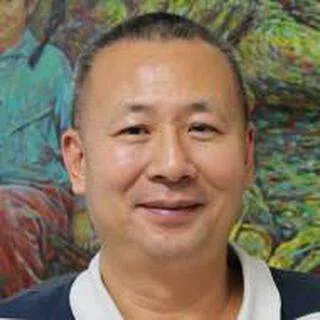[Photo story] Talks between Henry Kissinger and Zhou Enlai
Henry Kissinger passed away recently at the age of 100. Declassified records of talks between Kissinger and Chinese Premier Zhou Enlai in 1971 revealed the attitudes of both towards each other, and towards Japan - which was not always complimentary.
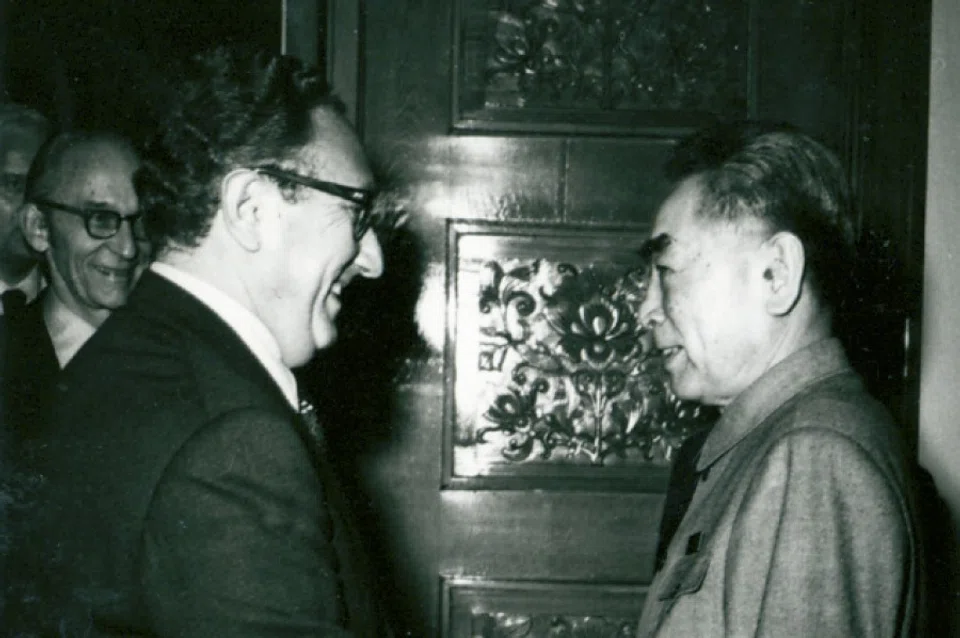
(All photos courtesy of Hsu Chung-mao.)
Renowned American politician and strategist Dr Henry Kissinger recently passed away at the age of 100. He was recognised for his significant contributions to the success of the US in the Cold War - albeit sacrificing the interests of some allies in the process.
Kissinger's most significant diplomatic legacy remains the framework of US-China relations established during US President Richard Nixon's era, with its strategically ambiguous concept of "one China" as the foundation for peace in the Taiwan Strait and East Asia.
Moreover, Kissinger seemed deeply enamoured with China and was considered forever a friend of China. Regardless of China's international fluctuations, Kissinger was always heard speaking up for China. In particular, when the US political sphere fiercely criticised China on certain issues, Kissinger would explain China's situation to the American people in a sympathetic tone. In fact, the US's closest Asian ally is actually Japan, but Kissinger clearly valued China far more than Japan.
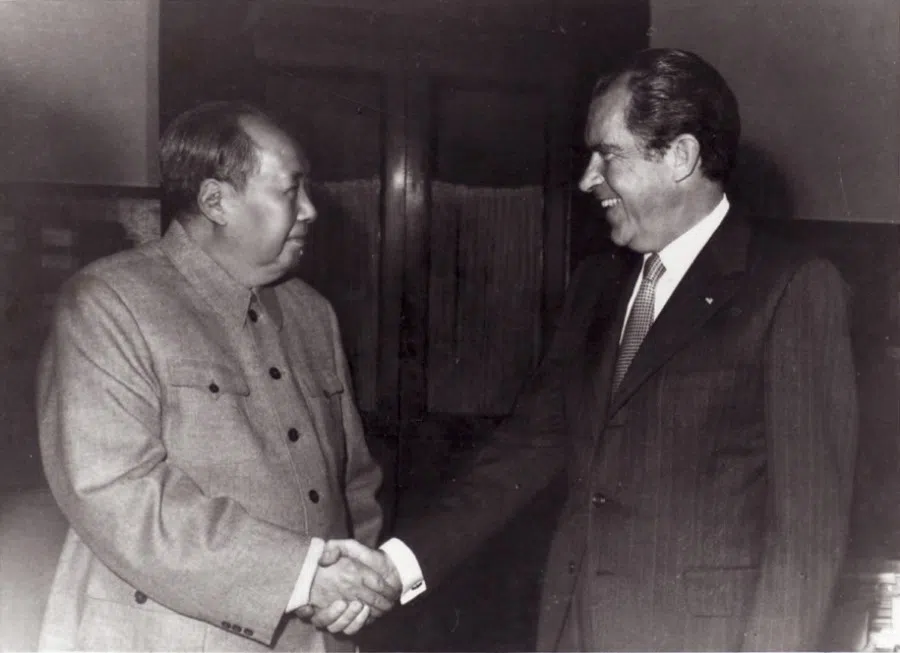
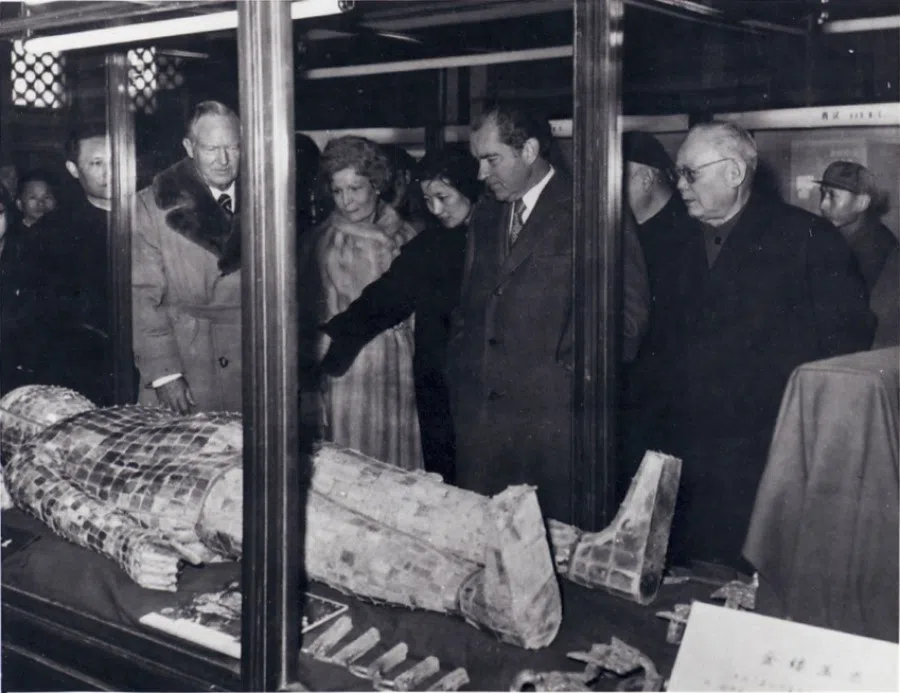
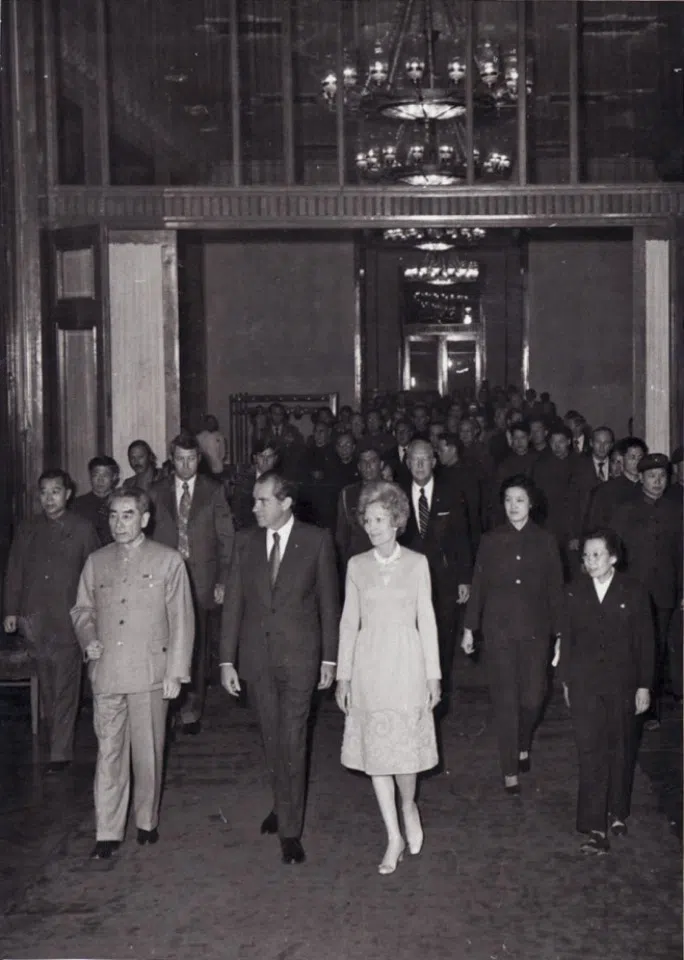
In 2002, the US released declassified records from the secret meeting between Kissinger and Chinese Premier Zhou Enlai at the Great Hall of the People in Beijing on 21 October 1971. The released content drew much attention from Japan's political circles and media, particularly the sections related to Japan. Kissinger's remarks clearly reflected the US government's attitude of disdain and distrust towards Japan.
In his conversation with Zhou, Kissinger naturally prioritised US interests, but between Japan and China, Kissinger was clearly on China's side.
The following are extracts of the conversation between Kissinger and Zhou regarding Japan.
***
Kissinger: Why doesn't the Prime Minister, who has thought so much about the problem, begin with his concerns and perhaps I should respond to him.
Zhou Enlai: At the present level of the economic development of Japan, it is difficult for her to put brakes on that. And so inevitably that gives rise to contradictions overseas, like some large groups of developed and also developing countries.
And so the question arises as to whether the help to developing countries will help them or on the contrary, deepen their coIonization of these countries.
As for us, we always hope that Japan, which has come through two World Wars and particularly after the lessons of the Second World War, would take the road of peace and neutrality.
But if the Japanese government continues its policy of capitalistic competition, it is bound sooner or later to give rise to trouble... So if their present policies in economic development are not changed, then the economic expansion will bring military expansion even if they use the name of self-defense.
We do not want to be hostile with Japan... So if in dealing with this matter, if the expansionist policies of the Japanese government can be repudiated and a policy of peace encouraged, then this state of affairs can be improved.
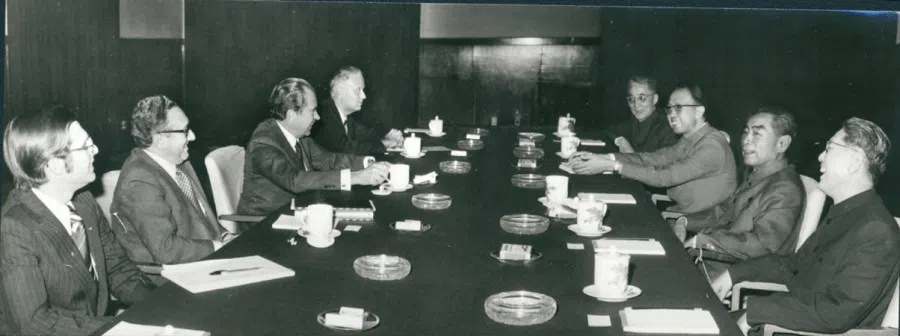
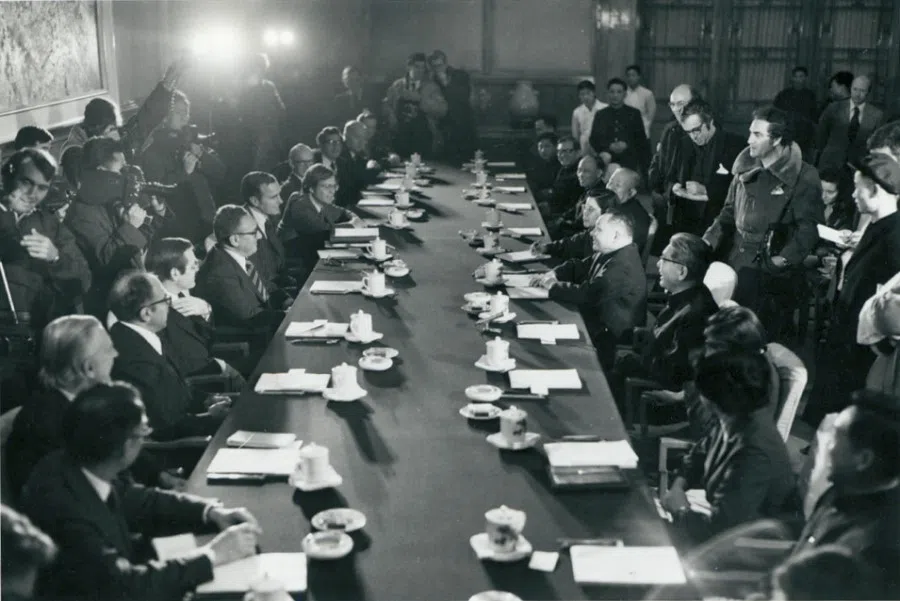
Kissinger: I will give you our frank assessment. There are of course many different views about Japan and its national character, but I can give you my personal view... If I can contrast China with Japan as a society, China by tradition has a universal outlook but Japan has had a tribal outlook.
Zhou: They are more narrow. It is also quite strange. They are an island mass. Britain too is an island mass.
Kissinger: They are different because Japan believes that their society is so different that they can adjust to anything and preserve their national essence. Therefore, the Japanese are capable of sudden and explosive changes. They went from feudalism to emperor worship in two to three years. They went from emperor worship to democracy in three months.
I agree with the Prime Minister that economic development produces its own imperatives. And I agree in part with the Prime Minister that the Japanese method of economic development illustrates its tribal character because its method has the objective of tying countries to its policy. So I have no illusions about Japan.
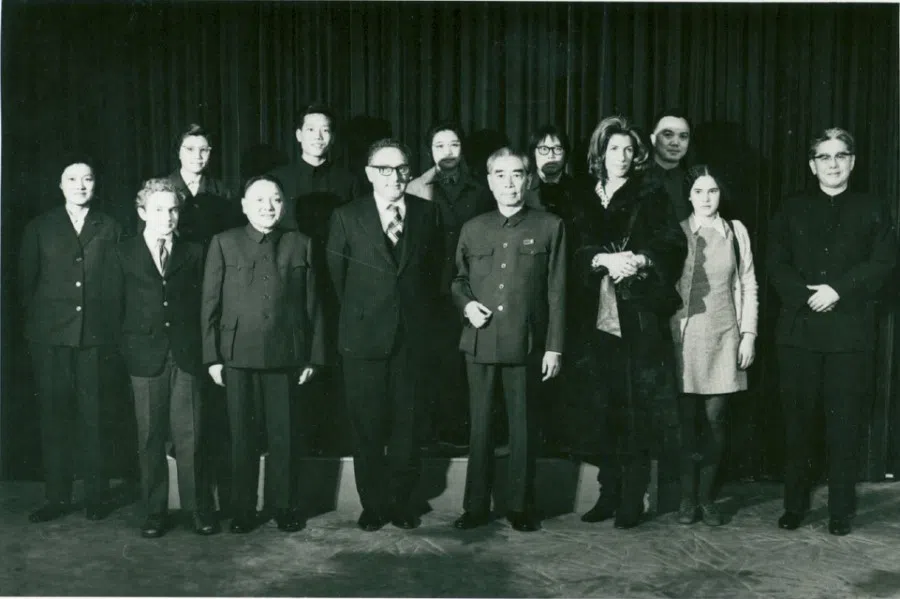
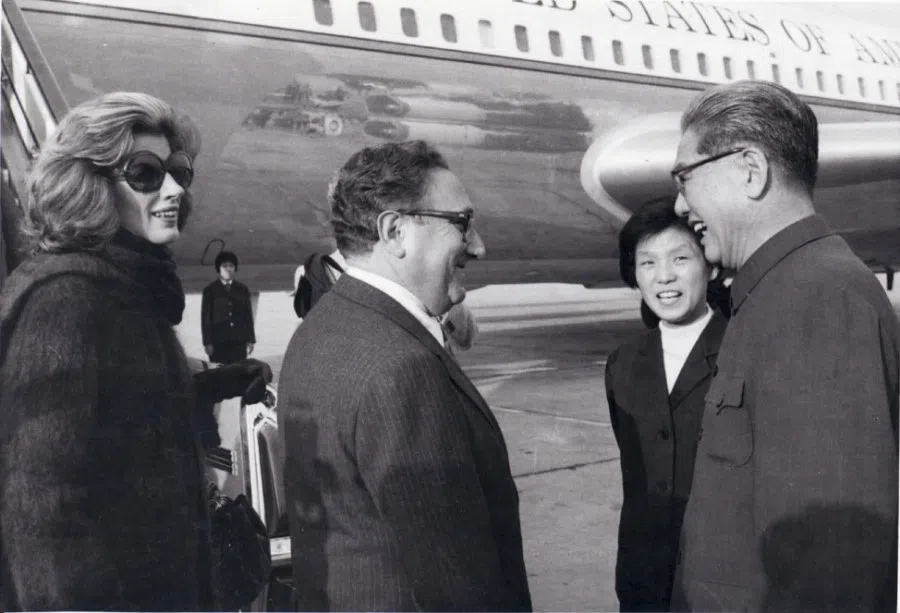
Zhou: If you say you do not want a nuclear armed Japan, does that mean you would give Japan a nuclear protective umbrella because they can use that to threaten others?
Because they will feel they have as their allies a big power so that they can expand economically with their military forces following.
Kissinger: The nuclear umbrella applies primarily to a nuclear attack on the Japanese islands. It stands to reason we are no more likely to use nuclear weapons for Japan than we are for ourselves; in fact, less likely. But the Japanese have the ability to produce nuclear weapons very quickly.
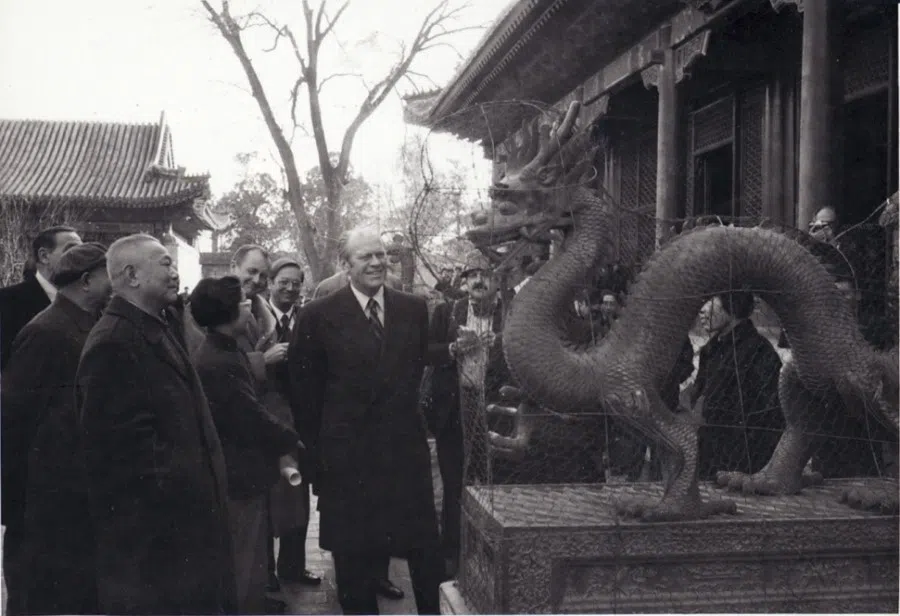
Zhou: That's possible.
Do you think you are capable of limiting the Japanese self defense strength?
Kissinger: Mr. Prime Minister, I do not want to assert things of which I am not sure... It makes no sense for the United States to have fought World War II to prevent the physical domination of Asia by Japan in order to encourage it 25 years later... if Japan should have a massive rearmament program, then the traditional relationship between China and the United States would reassert itself, and we would like to discuss very seriously the situation that would exist.
So to sum up, we will do our best to limit armament to defend the four islands, but failing that, we will do what we can with other countries to stop the physical expansion of Japan.
Zhou: Japan is a wild horse without U.S. control, here, there and everywhere. Is it possible to control them with her economy to such an extent?
Kissinger: Not completely, but in military aspects, which concern you, there is more possibility than under your arrangements... Japan is not doing much for us militarily. If we had aggressive designs in the Far East, we wouldn't need Japan. We wouldn't need our bases in Japan. We can do it elsewhere.
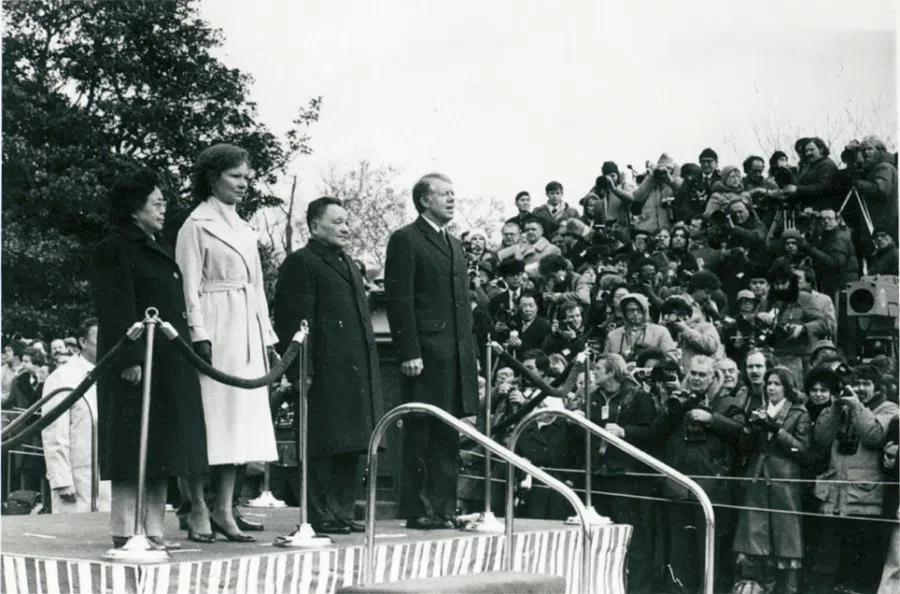
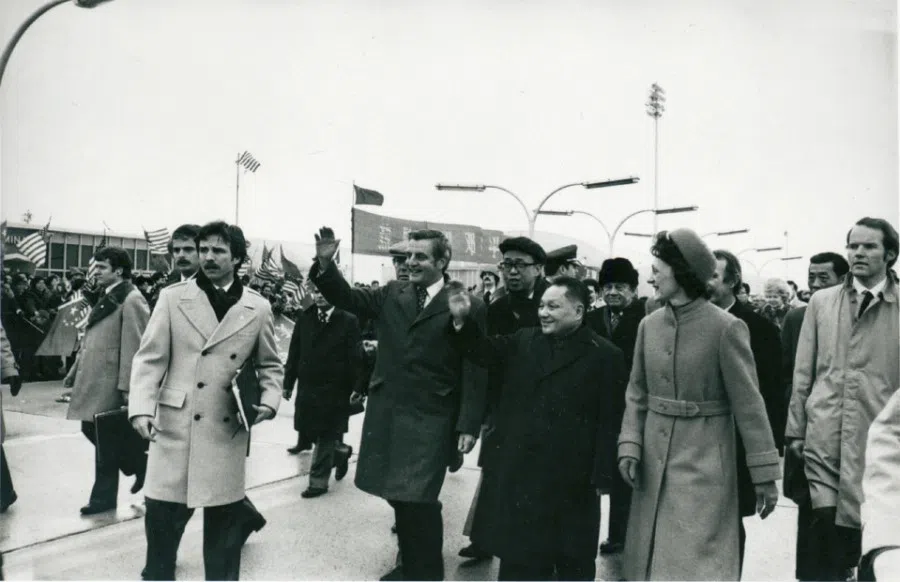
Zhou: Yes, it would not be good to have a revival of Japanese militarism, but there is the question of Japan developing its economy to its present level. We cannot say that you haven't fattened Japan to its present extent.
Kissinger: It is essentially true. But now it's there, we must decide what to do about it on both sides of the Pacific. We cannot be fatuous optimists, and you also must look at the situation in the context of the present.
Zhou: Japan had already been fed into such a fattened state... The question now is that the broad masses of Japanese people demand the disbandment of bases on Japan. What do you think will be the role of these bases in Japan, including Okinawa?
Kissinger: Whenever the Japanese really want us to withdraw our forces from Japan, we will withdraw them. We are not doing this for ourselves primarily. But I don't think you should rejoice when that day happens, because some day you may regret it.
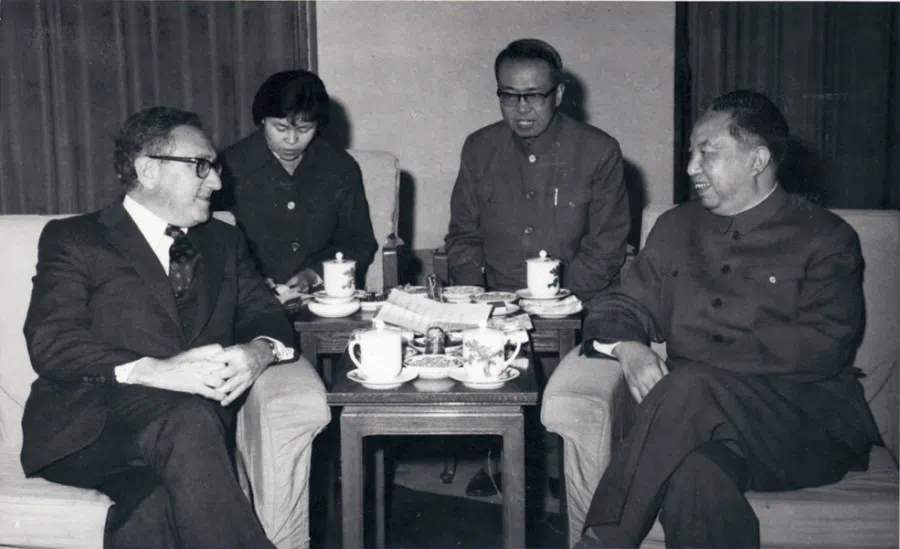
***
In his conversation with Zhou, Kissinger naturally prioritised US interests, but between Japan and China, Kissinger was clearly on China's side. This was not completely due to diplomatic considerations. While Japan was a more progressive democracy, over Kissinger's international political career, he constantly visited China, forged connections with Chinese political leaders, and was regarded by China as a good friend forever.
In contrast, Kissinger showed a clear lack of interest in Japan. For example, in his conversation with Zhou, he said, "China by tradition has a universal outlook but Japan has had a tribal outlook."
Zhou responded that "they [the Japanese] are more narrow", and even suggested that the US and China should restrain Japan together, fundamentally thinking little of Japan. Such comments were naturally a major psychological shock for Japan.
... while the US and Japan appeared close and friendly on the surface, the US did not see Japan as a global partner, but a former enemy that it had to restrain...
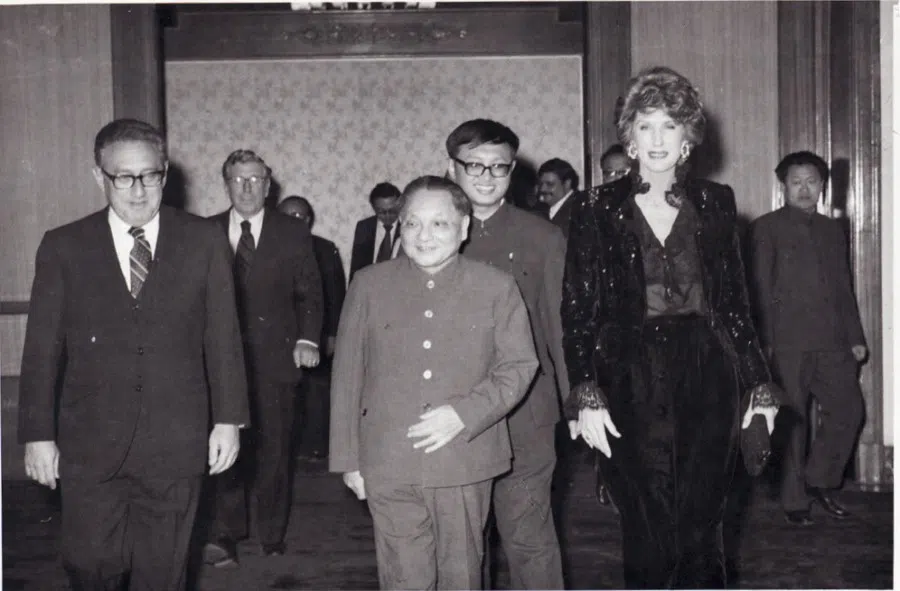
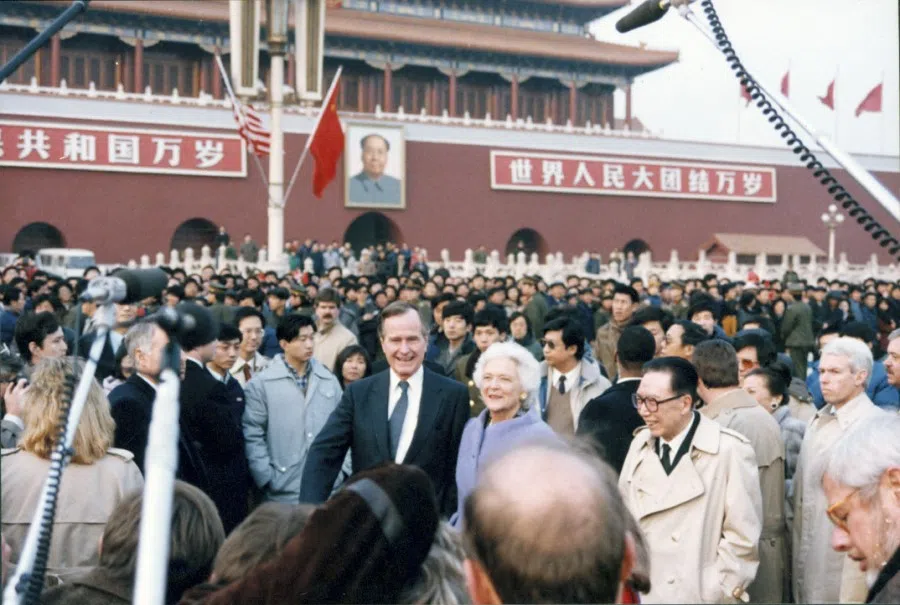
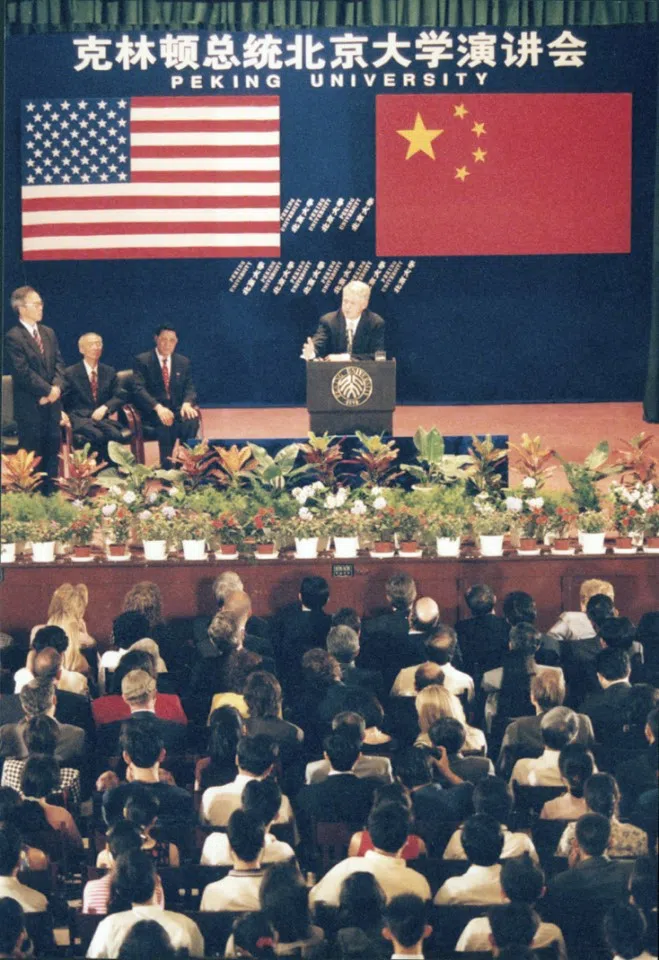
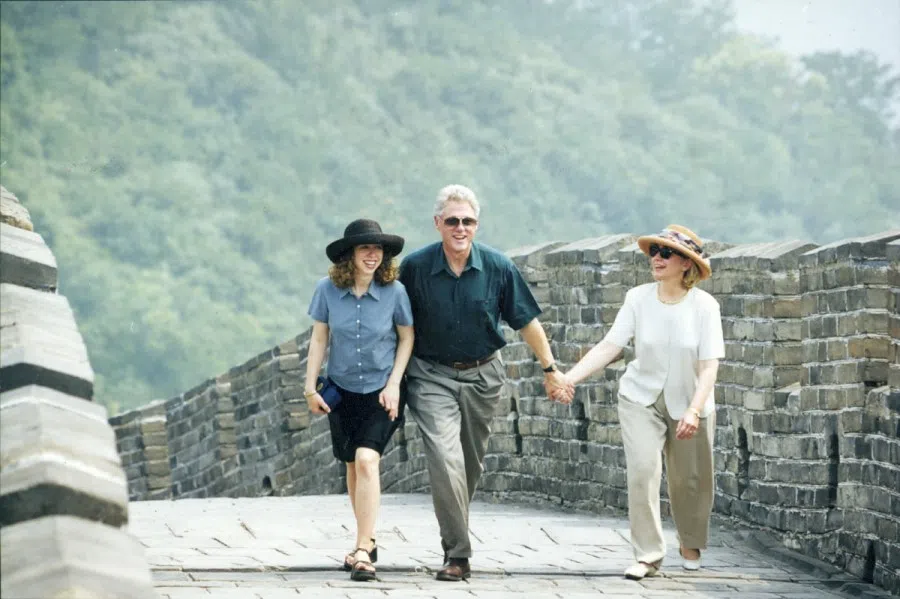
So, while the US and Japan appeared close and friendly on the surface, the US did not see Japan as a global partner, but a former enemy that it had to restrain, amid the nice-sounding diplomatic rhetoric. In turn, Japan harboured an inexplicable fear that it might one day be betrayed and abandoned by the US.
Taiwan-based Japanese writer Yoshihiko Honda said: "The diplomatic talks between Kissinger and Zhou happened 50 years ago, but they reflect the unconscious disdain and mistrust of the US towards Japan. That has not changed to this day, and it informs how both sides interact."
